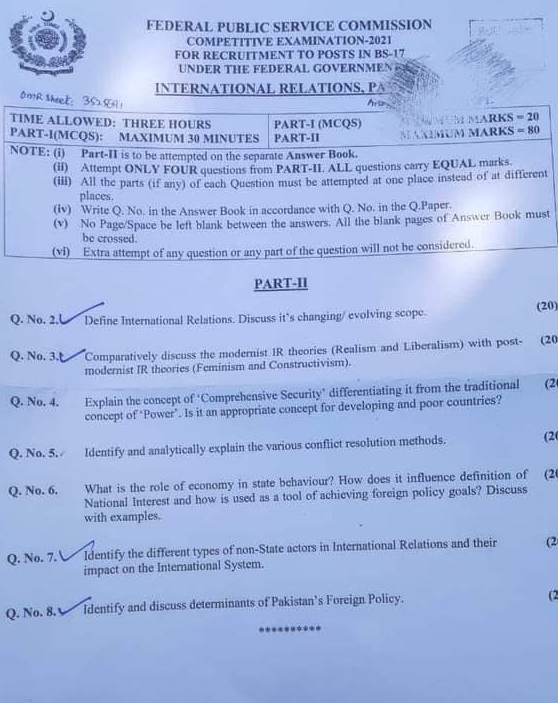Q.4 What is the role of economy in state behaviour? How does it influence definition of National Interest and how is used as a tool of achieving foreign policy goals? Discuss with examples. 2021

The economy plays a critical role in state behavior and foreign policy. The economic well-being of a state is often linked to its national interest, which is the overall goal of a state’s foreign policy. A state’s economic interests may include access to natural resources, trade relations, investment opportunities, and the ability to compete in the global economy. Economic factors can shape a state’s foreign policy in several ways:
- Defining National Interest: Economic factors can influence the definition of a state’s national interest. A state’s economic interests may shape its foreign policy priorities and determine its stance on issues such as trade, investment, and economic development. For example, the United States’ national interest includes promoting economic growth and job creation, which has shaped its foreign policy towards trade agreements and investment partnerships.
- Foreign Policy Goals: Economic tools can be used as a means of achieving foreign policy goals. Economic sanctions, for example, can be used to influence the behavior of other states. The United States has used economic sanctions as a tool of foreign policy to pressure countries like Iran and North Korea to change their behavior.
- International Cooperation: Economic cooperation can foster international relations and cooperation. For example, the European Union was formed to promote economic cooperation and stability among its member states. Economic cooperation can also be used to build alliances and partnerships, as seen in China’s Belt and Road Initiative, which aims to build infrastructure and promote economic development in countries across Asia, Europe, and Africa.
- Economic Power: Economic power can also influence a state’s foreign policy. States with strong economies may have greater leverage in international negotiations and be able to exert more influence on global affairs. The United States and China, for example, are two of the world’s largest economies and use their economic power to advance their foreign policy goals and influence global affairs.
In conclusion, the economy plays a crucial role in state behavior and foreign policy. Economic factors can shape a state’s national interest, influence its foreign policy goals, promote international cooperation, and exert economic power and influence on global affairs. The use of economic tools as a means of achieving foreign policy goals is evident in the policies of many states, and the examples discussed above demonstrate the complex interplay between economics and foreign policy.